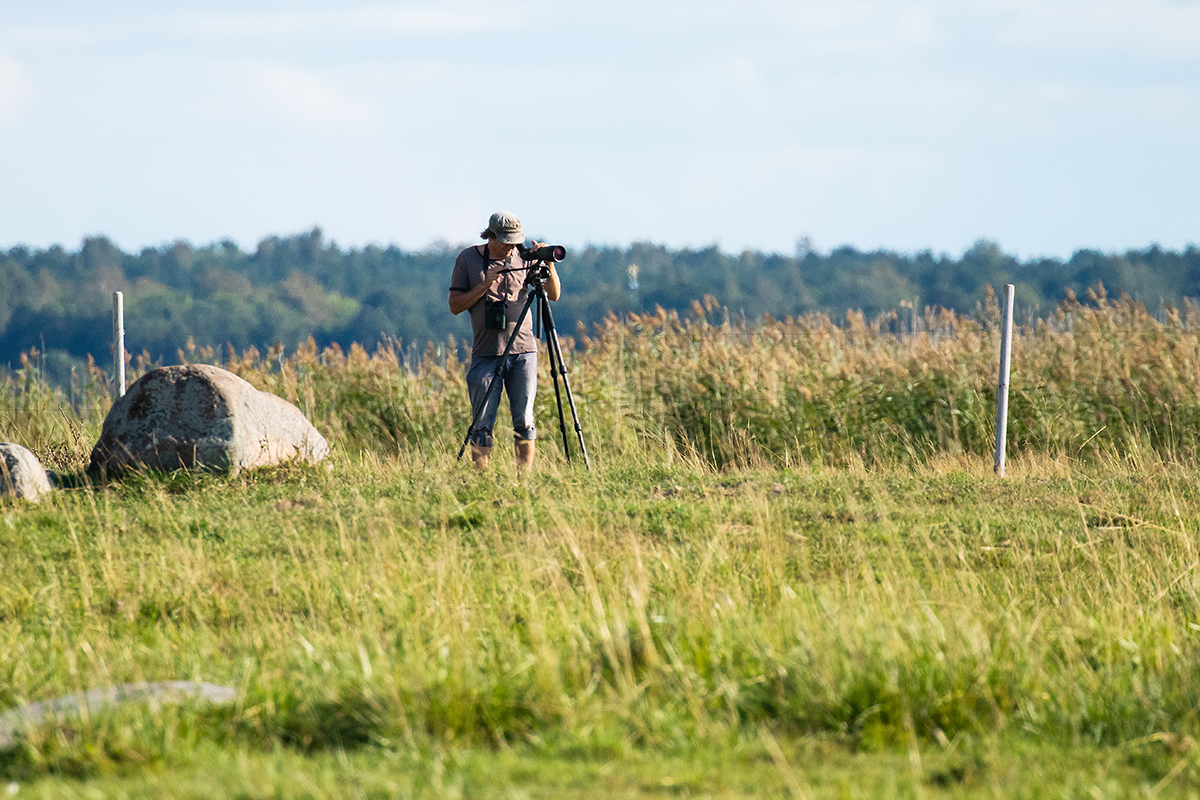The twenty-first century is a century of environment, climate, and nature protection – every purposeful activity that protects nature and contributes to preserving the living environment is worth following

With simple actions, or occasionally lack of action, you can help preserve habitats and species. Both everyday nature-friendly behaviour as well as active participation in nature conservation events help protect nature.
The easiest, but also the most important way to protect nature is for everyone to do their part in preserving nature. This means that every person can take action and make decisions that contribute to the conservation of species and their habitats. The wise choices of every human being are essential for the preservation of our biodiversity. You can find examples of how to support biodiversity in your home garden here.
If you want to do more to protect nature, it is possible to participate in the communal events organised all across Estonia by the Estonian Fund for Nature (ELF). At ELF’s communal events, you would do nature conservation work, explore the surroundings, hike, or listen to the stories of a local nature expert. The activities may also include, for example, a canoe trip, birdwatching, campfire evenings with singing and playing the guitar, running into the river right out the sauna, or a looking at the sunset at the beach [1]. You can read more in the ELF campaign calendar.
In the springtime, ELF organises frog rescue campaigns ‘Konnad teel (t)’ (Frogs on (off) the roads). In doing so, volunteers help frogs moving from wintering to breeding grounds over critical sections of the road.
You can also contribute to the preservation of nature as an citizen scientist. By entering the species around you and their habitats in different databases, you are helping to collect data on the distribution of the species. In the process, you might get lucky and discover a new habitat or site of a protected species, or even an entirely new species for Estonia. See more in the section ‘How can I contribute to studying nature? ’.
The Nature Conservation Act allows anyone to make a proposal to place natural objects under protection. If you find that a known natural object is endangered, rare, has a historical-cultural background, or is otherwise worthy to place it under nature protection, you can make a proposal accordingly. Contact the Ministry of the Environment or the local government with your request to place natural object under protection. More information is available in section 8 of the Nature Conservation Act.
Cleaning up after yourself in nature (sort the garbage and take it to the appropriate containers!) and generating as little garbage as possible also helps protect nature and the environment. Explore recycling options, try to fix things instead of throwing them away, compost biowaste – less consumption means less mining, logging, and using up other natural resources.
By participating in the ‘Teeme ära’ (Let’s do it!) clean-up events, you are doing a good deed to the nature of our planet.
Editors: Sigrid Ots, Reigo Roasto
Last modified: 17.01.2022
__________________________________________________
[1] Eestimaa Looduse Fond https://talgud.ee/talgud/mis-on-talgud